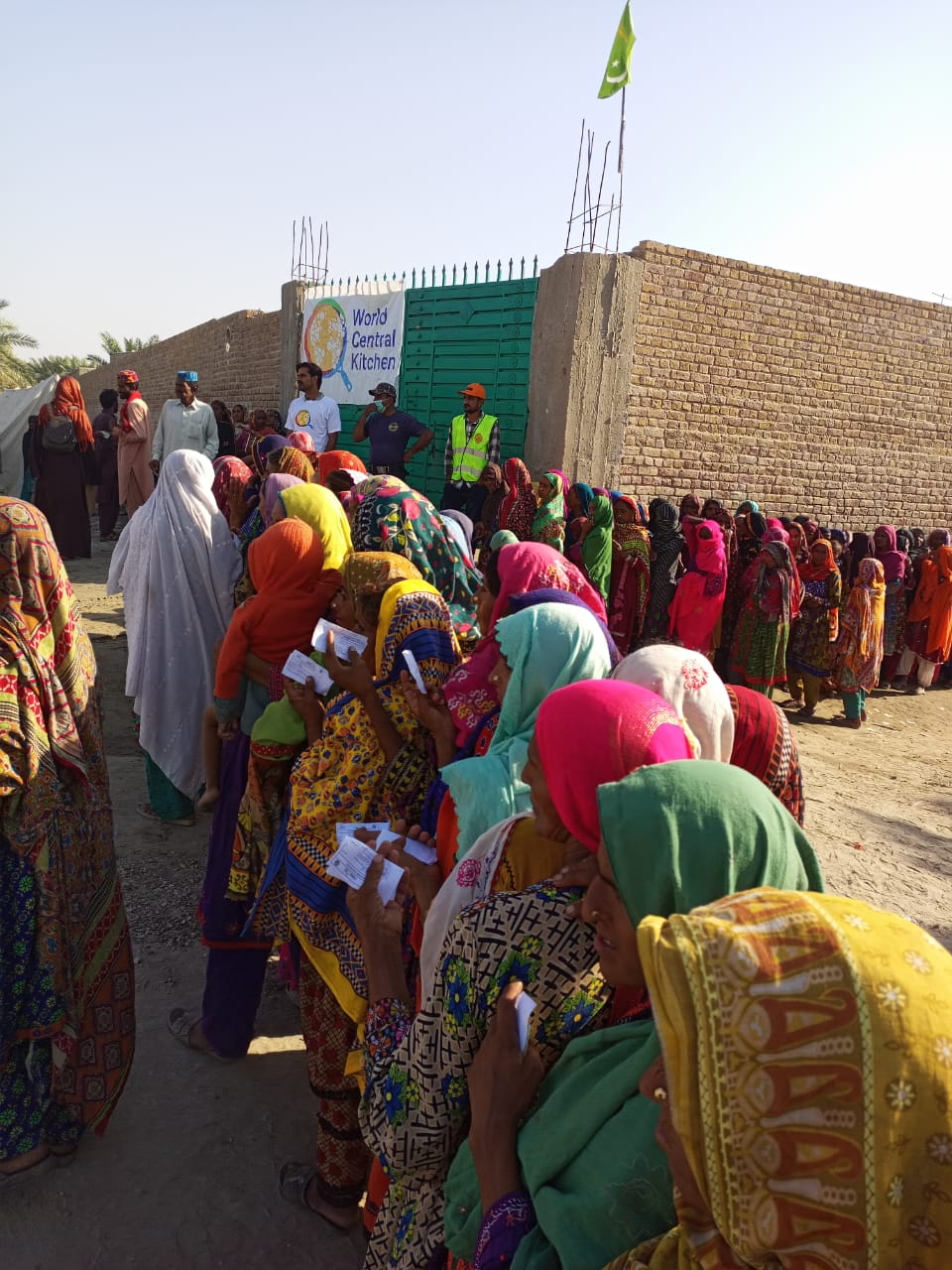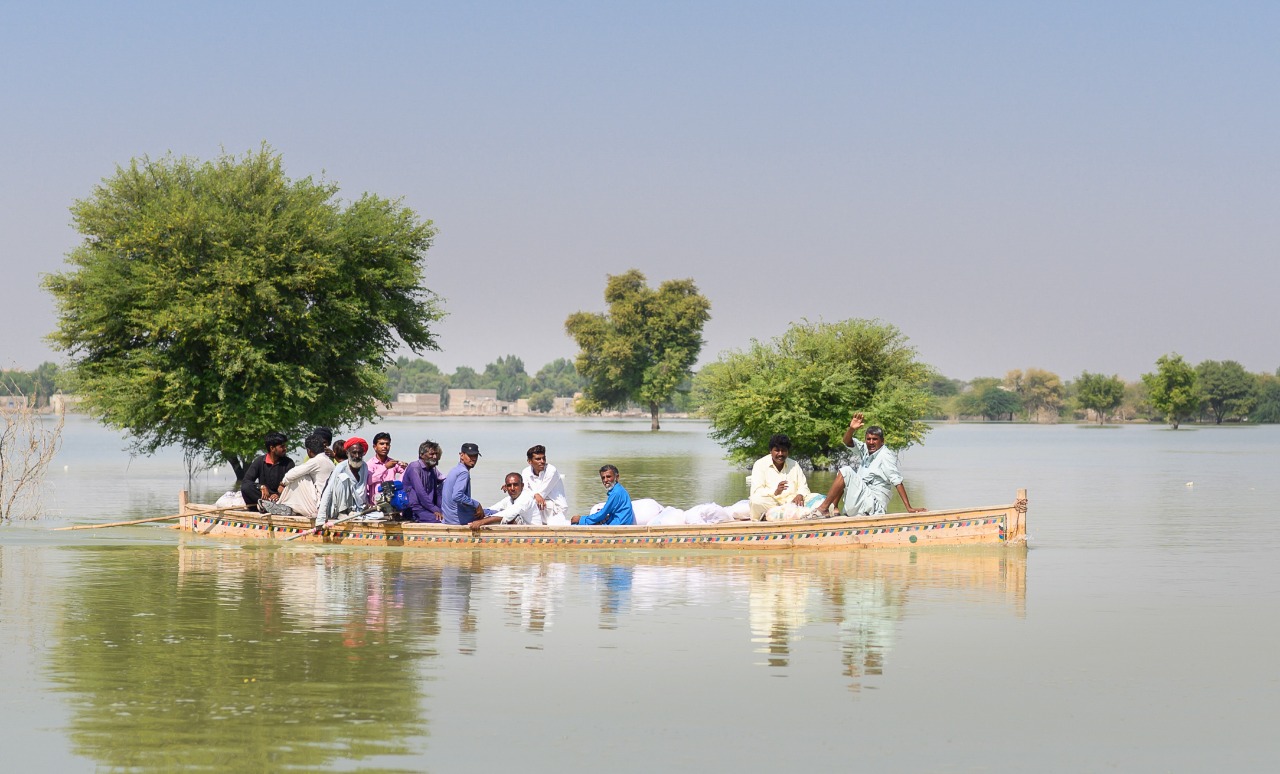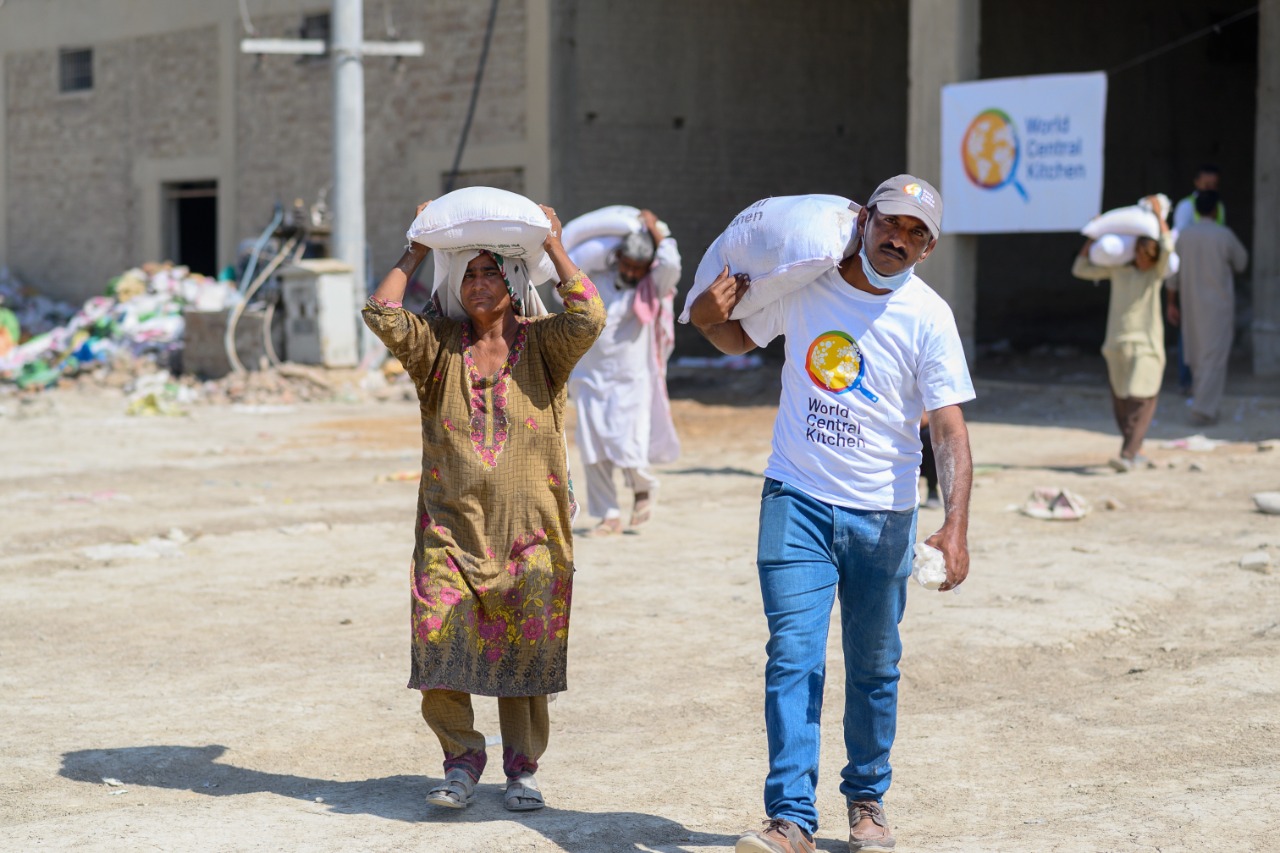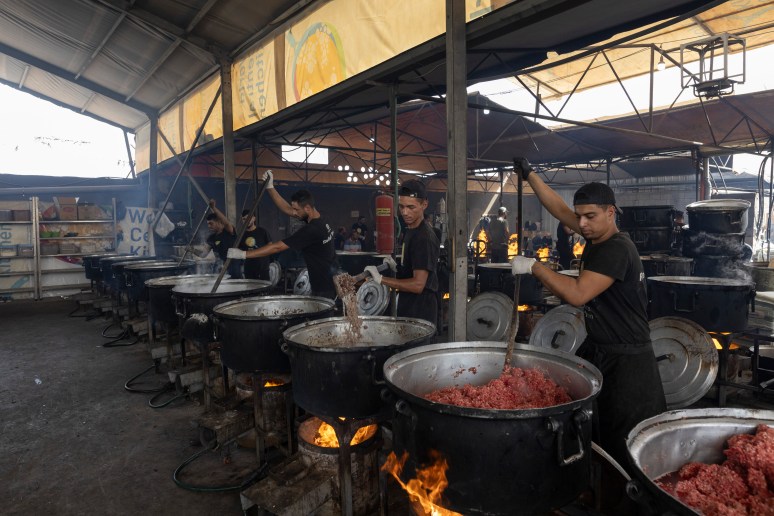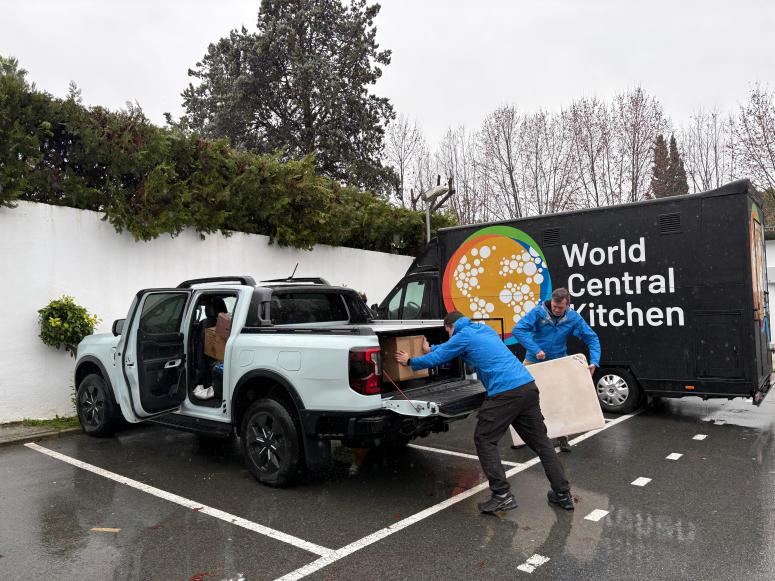Nearly 200 tons of food distributed to flooded villages in Pakistan
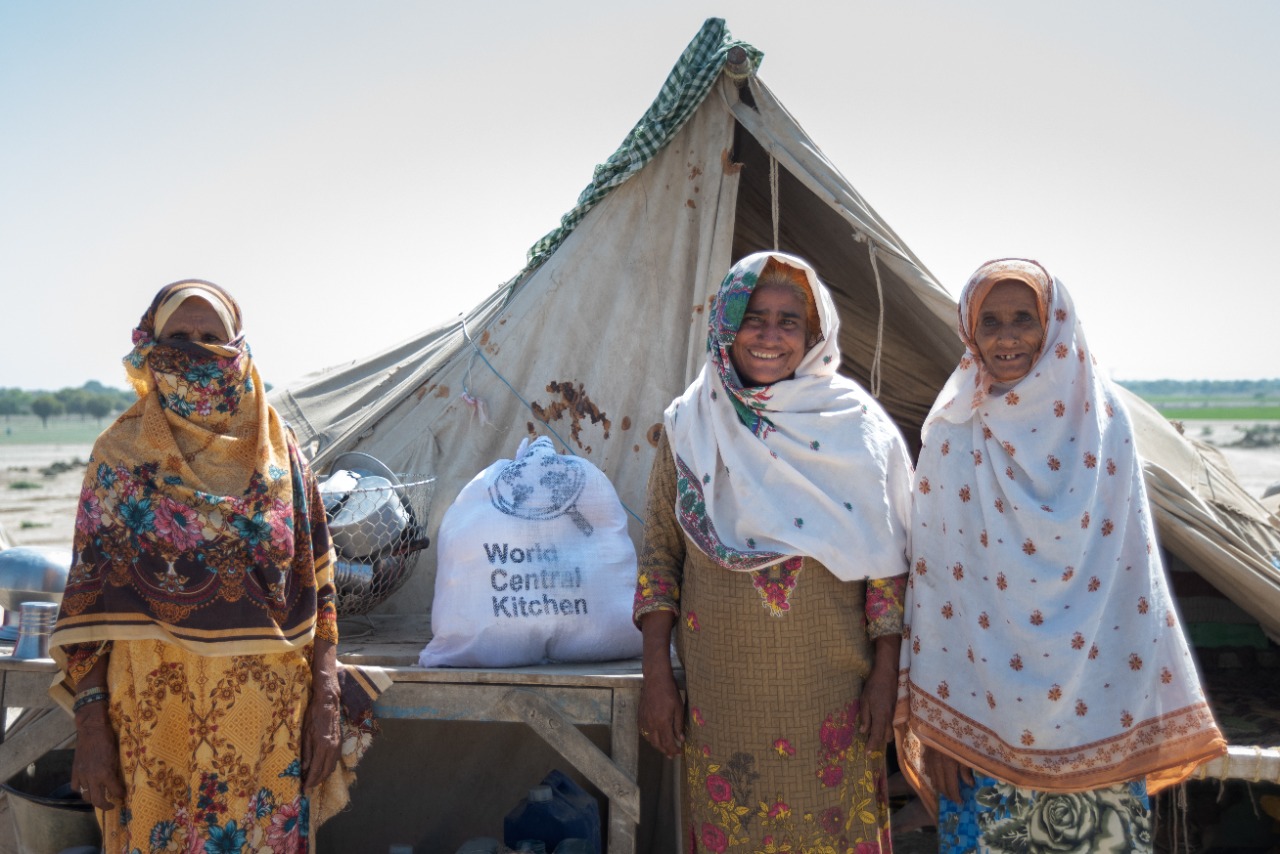
In response to an intense monsoon season that brought historic flooding to Pakistan, WCK established two Field Kitchens to cook 77,000 hot meals for impacted families in the hard-hit provinces of Khyber Pakhtunkhwa and Sindh. Now, WCK regional partners are continuing to help us with our second phase of support—food kit distribution. We provided a variety of items including rice, tea, spices, and even candles since some people are still without electricity.
NGO Instant Aid, who WCK has worked with in both Ukraine and Afghanistan, supported our Khyber Pakhtunkhwa efforts. The team quickly assembled 400 dry ration food kits and distributed them to families in Swat District.
Residents in the northeastern city continue to live in temporary camps since being displaced by catastrophic floods.
Across Sindh province, WCK partner Rizq overcame logistical challenges to get much-needed food kits to villages still underwater.
Over 1,500 kits were loaded up into trucks and delivered to 19 villages in Khairpur and Kot Diji.

In Johi and surrounding areas, we used tractor trailers since flood waters—many feet deep in some villages—still cover fields, homes, roads, and vast stretches of land. The situation has also caused an increase in snake sightings and snake bite cases.
Until boats were necessary, our partners also used motorbikes to navigate narrow embanked roads. WCK’s efforts were also led by locals who have been aiding their communities since the flood hit their town in August.
To understand community needs in Meo Khoso, the Rizq team met with Muhammad who explained the state of his village. Water streams were blocking vehicle access and the area is still mostly underwater. Residents were having difficulty reaching critical amenities and are strained for space. Pictured below is the village mosque that was partially destroyed and surrounded by standing floodwaters. Children are seen playing in the courtyard.
Rehan and his family from Ibrahim Chandio were displaced from their home and are living in tents on a drier patch of land. Since necessities are in dire supply, Rehan and his friends made their kites out of used bags instead of the typical Pakistani paper kite.

Many communities across the flooded areas have had to rely on local vendors who use boats to bring in supplies. Seen below is a villager selling items like razor blades, potato chips, and candy.

Distribution in Johi included a centrally located warehouse where community members were able to come pick up their food kits. Our team helped residents carry these 74 lb bags back to their tents. Many people also made rafts and used boats and motorbikes.
Over the course of our response, the main access road to our distribution warehouse was overcome by flood waters. Tractor trailers used to transport food kits were getting stuck, so WCK partner Rizq got creative to ensure we successfully delivered over 162,000 lbs of food to families in need. The team used boats and whatever means necessary.
Villagers from Umaid Ali Bahota carried their food kits by foot.

Below children and people from Meo Khoso bring their WCK-provided food back home.
Relief Team member Imdad helped villagers from Ibrahim Chandio. The community has had to leave their homes entirely and settle in tents on an embankment near a water stream.
Whenever we include food kits as part of a WCK response, we make sure they’re special. In Muslim countries we often include a generous portion of dates. Upon returning to her tent in Ibrahim Chandio, Shehzadi emptied dates from our WCK food kit into a large pan. The dates were locally sourced by our team and all items in our food kits were from Pakistan.

Almost no aid is reaching the communities we supported, so WCK food kits proved to be essential. All together, WCK regional partners helped us provide over 5,000 food kits to families still dealing with the aftermath of floods in Khyber Pakhtunkhwa and Sindh. WCK is incredibly grateful for the tireless dedication of Instant Aid and Rizq who worked under difficult circumstances to make sure our efforts were a success.
Keep up with WCK’s work around the world by following us on Twitter, Instagram, and Facebook.
